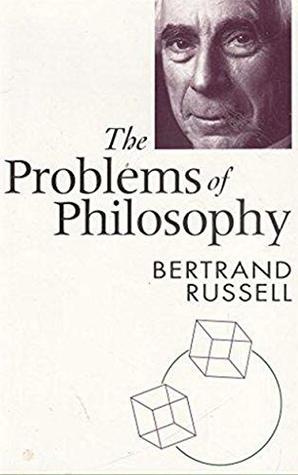More on this book
Community
Kindle Notes & Highlights
The word ‘idealism’ is used by different philosophers in somewhat different senses. We shall understand by it the doctrine that whatever exists, or at any rate whatever can be known to exist, must be in some sense mental. This doctrine, which is very widely held among philosophers, has several forms, and is advocated on several different grounds. The doctrine is so widely held, and so interesting in itself, that even the briefest survey of philosophy must give some account of it.
We have seen that, even if physical objects do have an independent existence, they must differ very widely from sense-data, and can only have a correspondence with sense-data, in the same sort of way in which a catalogue has a correspondence with the things catalogued.
He gives the name ‘idea’ to anything which is immediately known,
things remembered or imagined,
a confusion engendered by the use of the word ‘idea’.
a thought of the tree must be in our minds.
nature of ideas.
general question of the nature of ideas,
sense...
This highlight has been truncated due to consecutive passage length restrictions.
physical o...
This highlight has been truncated due to consecutive passage length restrictions.
treating the se...
This highlight has been truncated due to consecutive passage length restrictions.
more or less sub...
This highlight has been truncated due to consecutive passage length restrictions.
But this is an entirely different point from the one by which Berkeley seeks to prove that whatever can be immediately known must be in a mind.
quite distinct things
thing of which we are aware—say
actual awareness...
This highlight has been truncated due to consecutive passage length restrictions.
thing apprehended
they proved
They did not prove
confusing the thing apprehended
act of apprehension.
In the preceding chapter we saw that there are two sorts of knowledge: knowledge of things, and knowledge of truths. In this chapter we shall be concerned exclusively with knowledge of things, of which in turn we shall have to distinguish two kinds. Knowledge of things, when it is of the kind we call knowledge by acquaintance, is essentially simpler than any knowledge of truths, and logically independent of knowledge of truths, though it would be rash to assume that human beings ever, in fact, have acquaintance with things without at the same time knowing some truth about them. Knowledge of
...more
In almost all our previous discussions we have been concerned in the attempt to get clear as to our data in the way of knowledge of existence. What things are there in the universe whose existence is known to us owing to our being acquainted with them? So far, our answer has been that we are acquainted with our sense-data, and, probably, with ourselves. These we know to exist. And past sense-data which are remembered are known to have existed in the past. This knowledge supplies our data.
We saw in the preceding chapter that the principle of induction, while necessary to the validity of all arguments based on experience, is itself not capable of being proved by experience, and yet is unhesitatingly believed by everyone, at least in all its concrete applications. In these characteristics the principle of induction does not stand alone. There are a number of other principles which cannot be proved or disproved by experience, but are used in arguments which start from what is experienced.
But Kant undoubtedly deserves credit for two things: first, for having perceived that we have a priori knowledge which is not purely ‘analytic’, i.e. such that the opposite would be self-contradictory, and secondly, for having made evident the philosophical importance of the theory of knowledge.
If the study of philosophy has any value at all for others than students of philosophy, it must be only indirectly, through its effects upon the lives of those who study it. It is in these effects, therefore, if anywhere, that the value of philosophy must be primarily sought.
The value of philosophy is, in fact, to be sought largely in its very uncertainty. The man who has no tincture of philosophy goes through life imprisoned in the prejudices derived from common sense, from the habitual beliefs of his age or his nation, and from convictions which have grown up in his mind without the co-operation or consent of his deliberate reason. To such a man the world tends to become definite, finite, obvious; common objects rouse no questions, and unfamiliar possibilities are contemptuously rejected.
As soon as we begin to philosophize, on the contrary, we find, as we saw in our opening chapters, that even the most everyday things lead to problems to which only very incomplete answers can be given. Philosophy, though unable to tell us with certainty what is the true answer to the doubts which it raises, is able to suggest many possibilities which enlarge our thoughts and free them from the tyranny of custom. Thus, while diminishing our feeling of certainty as to what things are, it greatly increases our knowledge as to what they may be; it removes the somewhat arrogant dogmatism of those
...more


